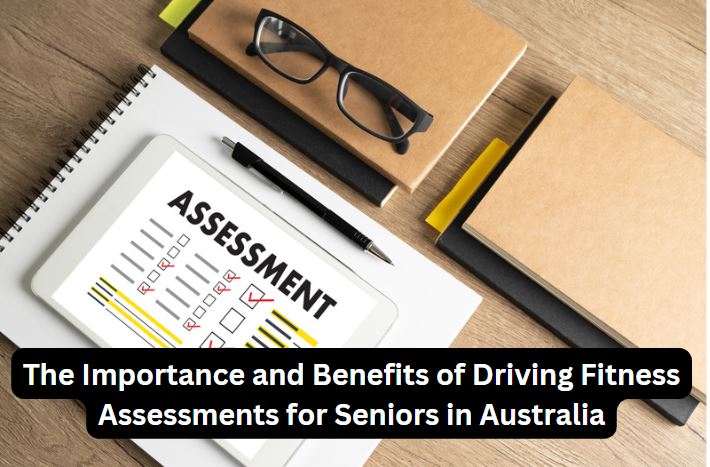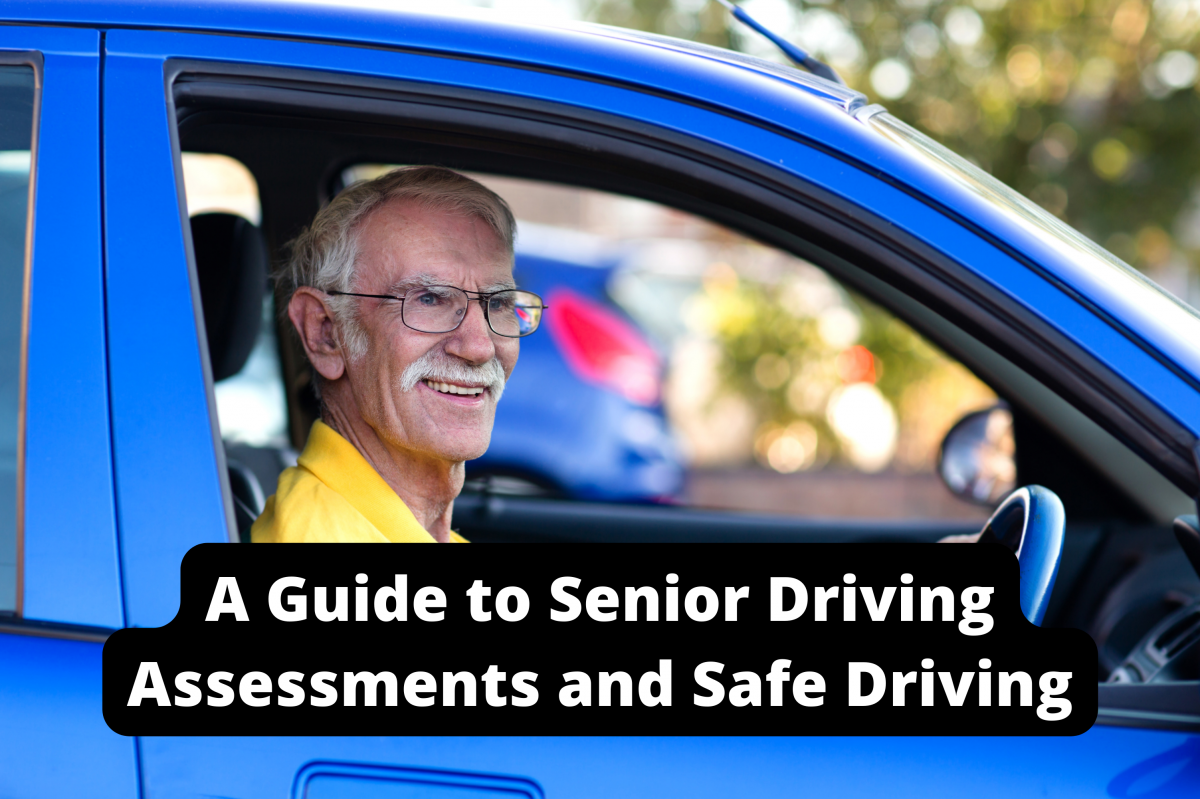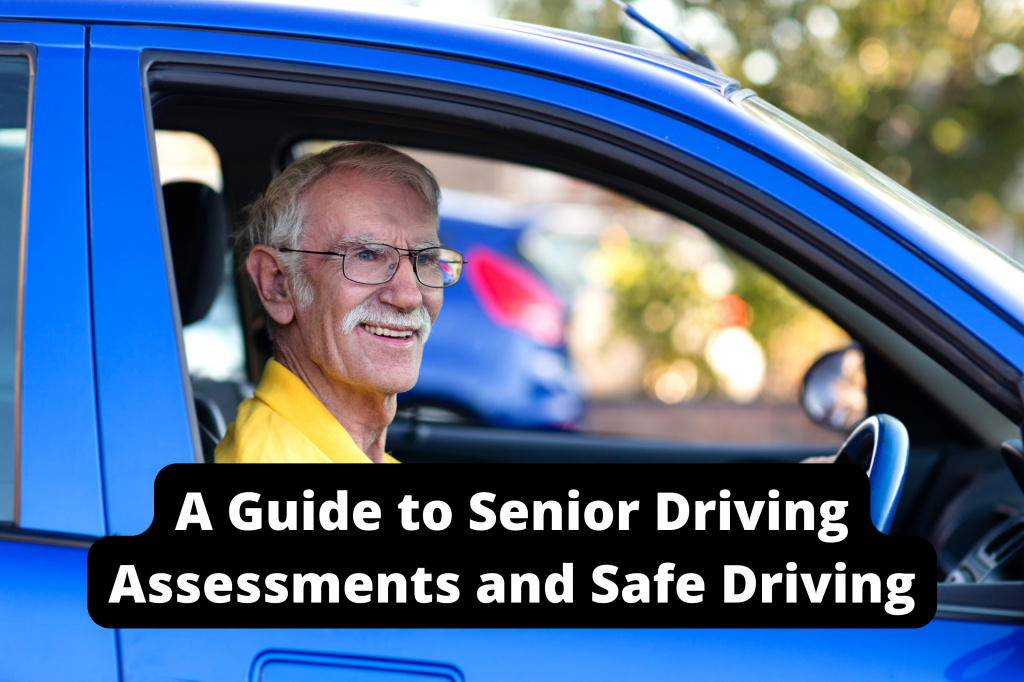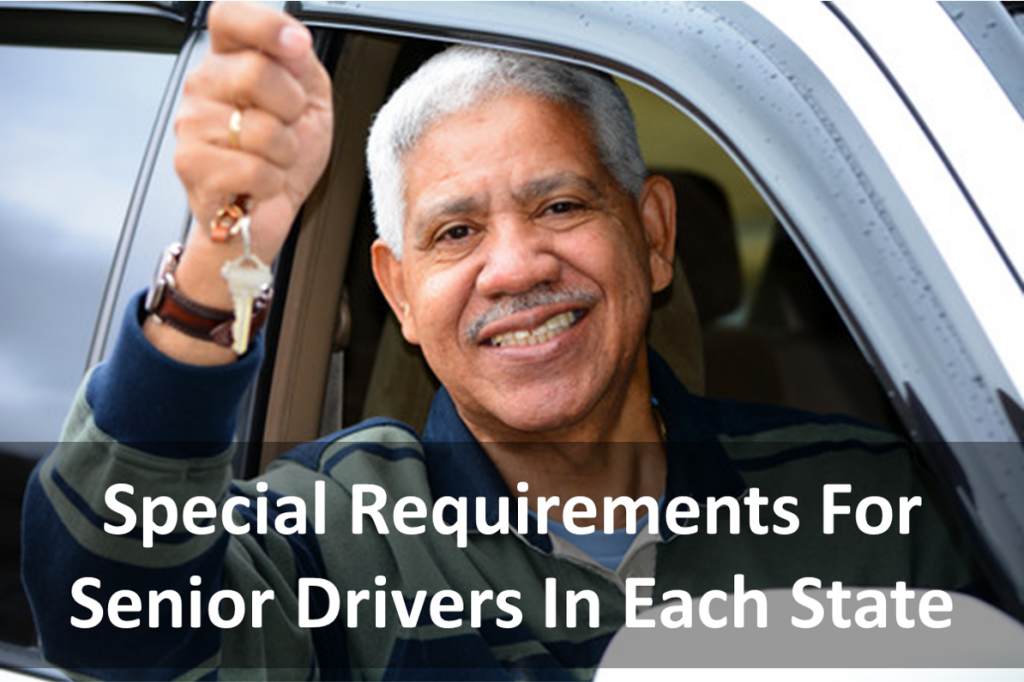 As the population in Australia continues to age, the number of older drivers on the road is increasing. While many seniors are able to drive safely well into their golden years, age-related changes can affect their driving abilities. To ensure the safety of older drivers, their passengers, and other road users, driving fitness assessments have become increasingly important. These assessments evaluate seniors’ physical, cognitive, and perceptual abilities to operate a vehicle safely, and can help identify any limitations or impairments that may affect their driving. In this article, we will discuss the importance and benefits of driving fitness assessments for seniors in Australia, including how they can benefit seniors, their family members, general practitioners, and the community as a whole.
As the population in Australia continues to age, the number of older drivers on the road is increasing. While many seniors are able to drive safely well into their golden years, age-related changes can affect their driving abilities. To ensure the safety of older drivers, their passengers, and other road users, driving fitness assessments have become increasingly important. These assessments evaluate seniors’ physical, cognitive, and perceptual abilities to operate a vehicle safely, and can help identify any limitations or impairments that may affect their driving. In this article, we will discuss the importance and benefits of driving fitness assessments for seniors in Australia, including how they can benefit seniors, their family members, general practitioners, and the community as a whole.
What Is a Driving Fitness Assessment for Seniors?
Driving fitness assessments for seniors are tests that evaluate an older driver’s physical, cognitive, and perceptual abilities to operate a vehicle safely. These assessments are important because aging can result in changes in driving abilities, such as slower reflexes, decreased vision, and decreased hearing. These changes can affect the safety of the older driver, their passengers, and other road users. Driving fitness assessments help determine whether a senior is still capable of driving safely.
What is the Importance of Driving Fitness Assessment for Seniors?
Driving fitness assessments for seniors are important in Australia because the population is aging rapidly, and older drivers are at an increased risk of being involved in accidents. The Australian government recognizes the importance of ensuring the safety of all road users and has implemented laws that require older drivers to undergo regular driving fitness assessments to maintain their license.
The assessments are necessary to identify any age-related changes in driving abilities that could affect the safety of the older driver, their passengers, and other road users. Regular assessments also ensure that seniors are aware of their current driving abilities, and can help them identify when it may be time to retire from driving. In addition, driving fitness assessments can benefit the community as a whole by reducing the number of accidents involving older drivers, which can decrease the burden on the healthcare system and lower healthcare costs. Furthermore, by identifying older drivers who may need alternative transportation options, these assessments can improve the overall safety of the road for all drivers.
Overall, driving fitness assessments for seniors are important in Australia to ensure the safety of older drivers, their passengers, and other road users, while also benefiting the community as a whole.
Why Are Senior Driving Fitness Assessments Necessary?
Driving fitness assessments are necessary for seniors for several reasons. Firstly, aging can result in changes in physical and cognitive abilities, which can affect driving skills. For example, slower reflexes, decreased vision, and hearing can make it more difficult for seniors to react quickly to changing road conditions.
Secondly, seniors are at an increased risk of being involved in accidents due to age-related changes in their driving abilities. According to the George Institute for Global Health, older drivers are more likely to be involved in accidents than younger drivers, and the severity of the injuries sustained is often higher in older drivers.
Thirdly, driving fitness assessments are legally required in some Australian states to maintain a driver’s license for seniors. For example, in Queensland, drivers over the age of 75 are required to undergo a medical assessment each year.
Finally, senior driving fitness assessments are necessary for the safety of seniors, their passengers, and other road users. Regular assessments can identify any changes in driving abilities and suggest alternative transportation options if necessary, ensuring the safety of all road users.
Overall, driving fitness assessments for seniors are necessary to ensure the safety of older drivers, their passengers, and other road users, while also complying with legal requirements and identifying changes in driving abilities.
How Can Driving Fitness Assessments Benefit Seniors, Their Family, General Practitioners And The Community In General?
Driving fitness assessments can benefit seniors, their family members, general practitioners, and the community in several ways:
- Seniors: Driving fitness assessments can help seniors to identify any limitations or impairments that may affect their driving abilities. By identifying these limitations, seniors can take appropriate measures to address them, such as getting vision correction, modifying their vehicle, or improving their driving skills. This can help seniors to continue driving safely and maintain their independence.
- Family Members: Driving fitness assessments can provide family members with peace of mind knowing that their loved ones are safe on the road. It can also help family members identify any potential risks associated with their loved one’s driving and take appropriate measures to mitigate those risks.
- General Practitioners: Driving fitness assessments can help general practitioners identify any medical conditions or medications that may affect a patient’s driving abilities. This can help doctors to provide appropriate treatment or medication adjustments to improve a patient’s driving safety.
- Community: Driving fitness assessments can improve the overall safety of the community by identifying and addressing potential risks associated with senior driving. By promoting safe driving practices among seniors, driving fitness assessments can reduce the number of accidents and injuries on the road.
In conclusion, driving fitness assessments for seniors are crucial in promoting road safety in Australia. By identifying any age-related changes in driving abilities, these assessments help ensure the safety of older drivers, their passengers, and other road users. Furthermore, driving fitness assessments benefit seniors, their family members, general practitioners, and the community as a whole by promoting safe driving practices and providing alternative transportation options when necessary. With an aging population, it is important to prioritize the safety of all road users, and driving fitness assessments are an essential tool in achieving this goal.


 While many people like to feel like they’re still young as they age, it’s simply a fact of life that various physical and mental faculties deteriorate with age. Obviously, this level of deterioration varies from person to person, but none of us are immune to the advancement of aging.
While many people like to feel like they’re still young as they age, it’s simply a fact of life that various physical and mental faculties deteriorate with age. Obviously, this level of deterioration varies from person to person, but none of us are immune to the advancement of aging.
 As you get older, the same reflexes and physical abilities you possessed when you were younger start to diminish. If you’re a
As you get older, the same reflexes and physical abilities you possessed when you were younger start to diminish. If you’re a 

 Is the driver weaving all over the road?
Is the driver weaving all over the road?
 It’s a well-known fact that the older you get, the more of a risk driving on Australian roads can become.
It’s a well-known fact that the older you get, the more of a risk driving on Australian roads can become.